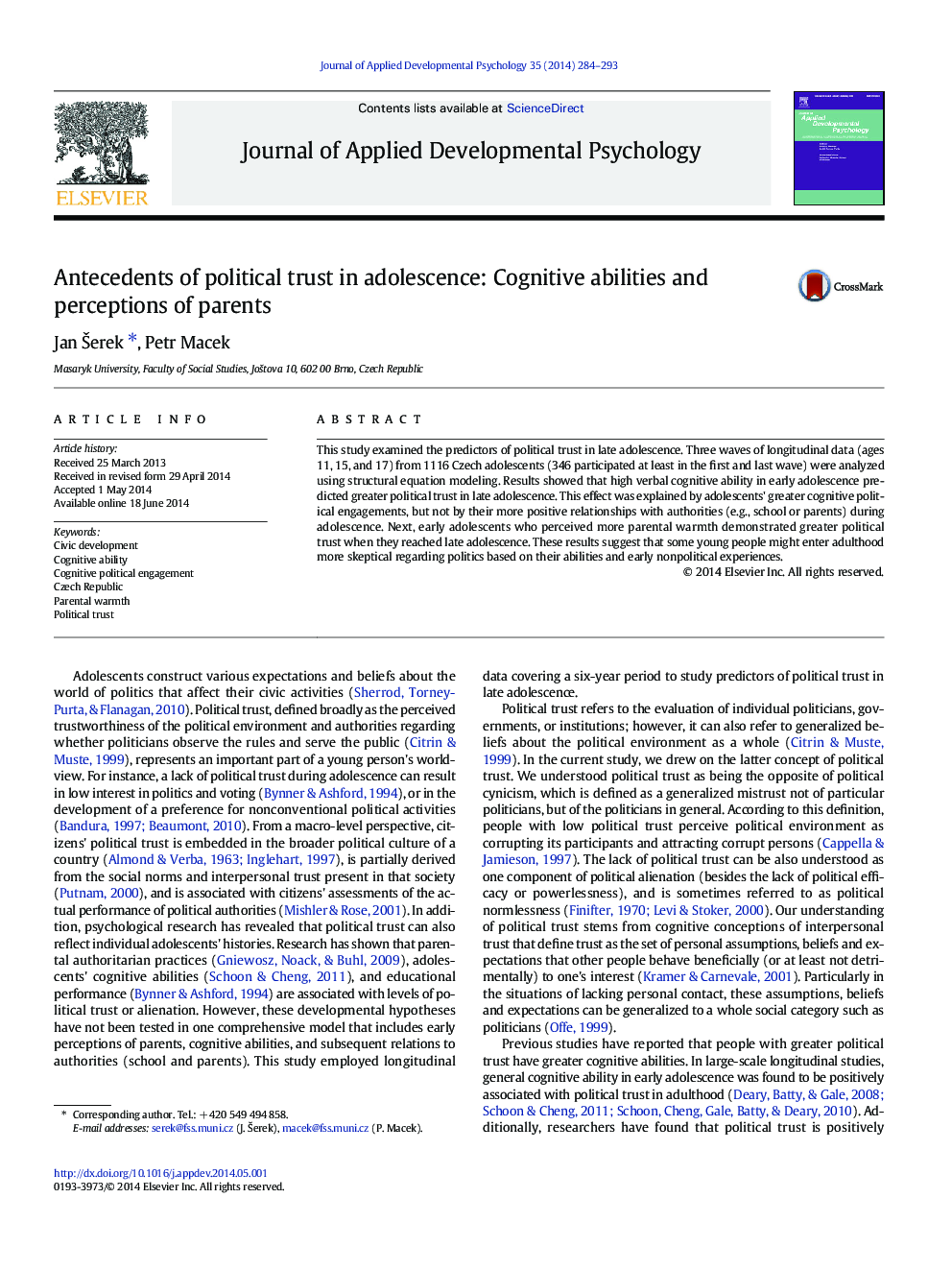| Article ID | Journal | Published Year | Pages | File Type |
|---|---|---|---|---|
| 359635 | Journal of Applied Developmental Psychology | 2014 | 10 Pages |
•Better-developed verbal ability (age 11) predicted greater political trust (age 17).•This effect was fully explained by greater cognitive engagement in politics.•This effect was unrelated to adolescent's relationship with school or parents.•Political trust was associated with verbal ability, but not with nonverbal ability.•Greater reported parental warmth (age 11) predicted greater political trust (age 17).
This study examined the predictors of political trust in late adolescence. Three waves of longitudinal data (ages 11, 15, and 17) from 1116 Czech adolescents (346 participated at least in the first and last wave) were analyzed using structural equation modeling. Results showed that high verbal cognitive ability in early adolescence predicted greater political trust in late adolescence. This effect was explained by adolescents' greater cognitive political engagements, but not by their more positive relationships with authorities (e.g., school or parents) during adolescence. Next, early adolescents who perceived more parental warmth demonstrated greater political trust when they reached late adolescence. These results suggest that some young people might enter adulthood more skeptical regarding politics based on their abilities and early nonpolitical experiences.
